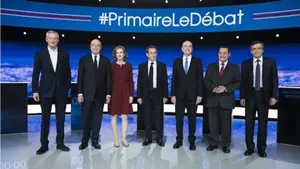A “name-and-shame” list of Russian oligarchs who made their money corruptly from their ties with Vladimir Putin was compiled by the US government agencies but then cancelled last week by a senior administration official, according to a Russia expert who was consulted on the list.
It was replaced by an all-inclusive list of rich Russians apparently copied straight from the Forbes magazine’s ranking of wealthy Russians, together with the names of some top Kremlin officials.
Putin described the list as a “hostile step”, but it has been the subject of derision in Washington and Moscow.
“It makes the whole thing ridiculous. There are no criteria,” said Anders Åslund, a Swedish economist, Russia expert and senior fellow at the Atlantic Council, who said he had been consulted to make suggestions on how the “Kremlin list” should be compiled, to comply with congressional legislation in July mandating tougher action on Russia.
Speaking from Kiev, Åslund said that a lot of work had gone into compiling the original list, but he was told on Thursday that someone high up in the administration had ordered for it to be binned and replaced by the Forbes-based list.
That list was put out at midnight on Monday, the deadline set by Congress for the administration to take action.
“It is a serious attempt by someone high up in government to make the US government and Congress look ridiculous,” he said.
Åslund added that he did not know which senior official ordered the change, but argued that by endorsing the list, the treasury secretary, Steven Mnuchin, “took responsibility for it”.
The Trump administration also came under fire for not announcing any new sanctions aimed at Russia as mandated in the July legislation, the Countering America’s Adversaries Through Sanctions Act. A senior administration official however, said the act and administration efforts to implement it, were acting as a deterrent to third countries thinking of doing defence or security deals with Russia.
“We have ben able to turn off potential deals worth several billion dollars. That’s real money not going to the Kremlin ... That is real success,” the official said. However he would not give any details of cancelled contracts or their total value. He insisted there would be sanctions in the future if major violations were spotted.
The treasury secretary, Steven Mnuchin, also told Congress that more sanctions would be forthcoming in the next few months.
“There will be sanctions that come out of this report,” Mnuchin said,
In a commentary on the Atlantic Council website, Åslund accused Mnuchin of “deriding” US sanctions on Russia and legislation signed into law by the president. He wrote that the original aim of the Kremlin list was to identify those who had made their fortune on illicit contacts with the Kremlin.
“The various US government bodies involved clearly carried out conscientious work along these lines,” he said. “At the last minute, however, somebody high up – no one knows who at this point – threw out the experts’ work and instead wrote down the names of the top officials in the Russian presidential administration and government plus the 96 Russian billionaires on the Forbes list.”
“In doing so, this senior official ridiculed the government experts who had prepared another report, rendering [the July congressional legislation] ineffective and mocking US sanctions on Russia overall. By signing this list, the secretary of the treasury took responsibility for it.”
“The main beneficiary of this list is Russia’s president,” Åslund concluded.
A Treasury spokesman confirmed to Buzzfeed on Tuesday that the Kremlin list had been derived from the Forbes ranking of “200 richest businessmen in Russia 2017.
“The way they published this list is not being to be effective,” said Peter Harrell, a former deputy assistant secretary for counter threat finance and sanctions in the state department. “Congress’s goal was to get the administration to focus on the people Putin is dependent on. They came up with a list that includes those people and everyone else.”
“It’s naming, but I’m not sure it’s actually shaming. It’s too inclusive to have any deterrent effect,” Harrell, now a senior fellow at the Centre for a New American Security, said.
Meanwhile, Chuck Schumer, the Senate minority leader, demanded the Trump administration explain a report that Moscow’s foreign intelligence director, Sergey Naryshkin, was allowed to enter the US despite being under sanction by the United States.
The Russian embassy in the US tweeted on Tuesday: “The director of Russia’s foreign intelligence, Sergey Naryshkin, has visited the United States for consultations with US counterparts on the struggle against terrorism.”
“The Trump administration must immediately come clean and answer questions,” Schumer said at a weekly press briefing on Tuesday. Among the questions he wants answered are: “Which US official did he meet with? Did any White House or security council official meet with Naryshkin? What did they discuss?”
“Surely he didn’t come alone,” Schumer added, and asked whether other sanctioned officials also entered the country. He also raised the possibility that Trump’s decision not to impose new sanctions outlined in a measure that Trump signed last year.
(THE GUARDIAN)
 简体中文
简体中文

